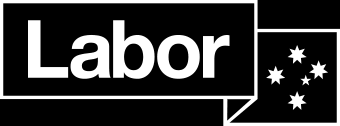I'm urging the Prime Minister to consider Labor's antivilification amendment so that the second reading speech has a piece of legislation that mirrors each other, so that the Prime Minister's words are true. Certainly in the conversations that the Prime Minister has had about the need for this religious discrimination legislation, he has made it very clear that this is particularly about looking after our multifaith communities. Like the Leader of Opposition Business, people won't discriminate against me because of my faith, because the majority of Australians are in the Catholic faith. But my electorate, like so many others here, has communities that are discriminated against and are vilified. It's interesting that in the lead-up to today's debate I've had many people, particularly on Twitter and Facebook and in emails to my office—some are constituents, some not—saying, 'You should just say no to this legislation because there is no problem.' It's really reassuring when middle-class, middle-aged, white, Anglo-Saxon men tell me that there is no problem with religious discrimination. We hear a different story; I hear a different story.
The electorate that I represent has a mosque in Kuraby that has been vandalised, terrorised and burnt. The wonderful Holland Park Mosque, which I've been to with the member for Chifley, is outside my electorate, just on the border between Griffith and Bonner, but many of my community would attend that mosque. It's the oldest mosque, certainly in Queensland. It's a beautiful mosque that has been attacked, targeted and had swastikas put out the front. People and communities have been attacked because of their religion. Any person of faith would say, 'We should do something about this.' I've been to the Bosnian mosque in Eight Mile Plains with the member for Chifley as well. It's not targeted so much, but many of its congregation came to Australia because they were targeted because of their faith and murdered because of their faith. Their country was torn apart because of religious differences, where people didn't step up and protect people of faith. The Mount Gravatt Jewish burial facility, which I've been to with the member for Griffith, services the Jewish community.
So many groups have been attacked because of their faith, so here is a simple amendment that will match the Prime Minister's words and his deeds together. Rather than there being any suggestion that he was misleading the Australian public in talking about this legislation, we would be able to match them together and help people who are attacked for wearing the clothes of their faith. It's easy to wear your faith under your shirt and tie, but if you're wearing a niqab or a hijab or a burqa, or any of those other items of religious clothing that attract vilification—where people are harassed, people are intimidated and people are scared—that's why we're doing this legislation.
Queensland has had religious discrimination legislation since Wayne Goss brought it in in 1991. Only about one per cent of the complaints that go to what was previously called the Anti-Discrimination Commission, now the Human Rights Commission, are to do with people being discriminated against because of their religion. But we do know that the people who are targeted are those from multifaith communities and minority religions.
That is why I am imploring the Prime Minister, who has so much power in his party room, to say, 'We can do this.' Cometh the hour, cometh the man. This is an opportunity for the Prime Minister to actually protect Australians who are targeted because of their faith. It's a simple thing to do. As the member for Wills stated—and he speaks with much authority on communities that are targeted because of their faith—'This goes to the heart of protecting the people who need it most.'
So I would urge those opposite—it's early in the morning, so you could just wander over here accidentally and pretend you're a bit tired—that when it comes to this antivilification legislation this will be a chance for you to leave a great mark in parliament.


